Politics
2024 Non-GMO industry calls for transparency and fair cooperation throughout the whole value chain
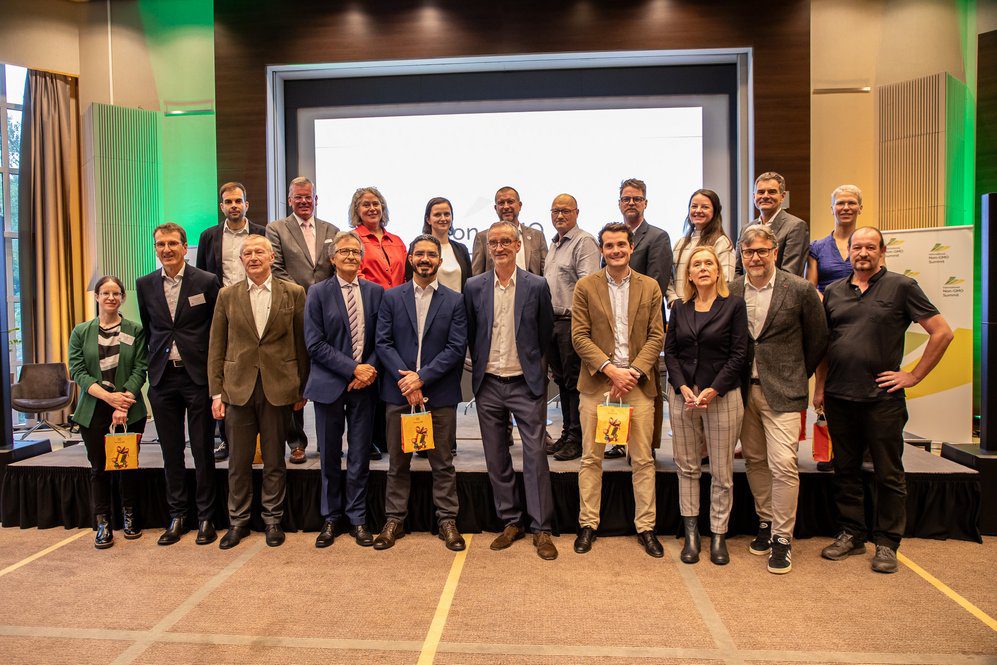
Frankfurt/Main, More than 160 representatives from a thriving international Non-GMO industry and leading European associations from 23 countries and four continents met on 7th and 8th October 2024 at the ‘International Non-GMO Summit 2024’ in Frankfurt. Operators across the full Non-GMO value chain are united in battling the current challenges posed by the planned deregulation of New Genomic Techniques, as proposed by the EU Commission. The participants at the Summit gave a clear message for freedom of choice and transparency.
“The Non-GMO sector is here to stay!”
On behalf of the organisers, Alexander Hissting, Managing Director of VLOG emphasised: “Non-GMO markets are economically very successful and are thriving with strong support from consumers. We are ready and willing to face current political and market challenges.“ The organisers are convinced that NGTs should be strictly regulated, just like all other GMOs. Hissting’s clear message: “The Non-GMO sector is here to stay!”
High-level political support, advocating freedom of choiceThe current Hungarian Presidency of the Council of the European Union and the German Federal Ministry of Food and Agriculture (BMEL) want to work towards a compromise in the revision of the EU‘s GMO legislation that ensures consistent labelling, coexistence and traceability in dealing with new genetic engineering techniques (NGTs). In his welcoming address, Dr. István Nagy, current President of the EU Council for Agriculture and Fisheries, stated: “I am convinced that the precautionary principle should be applied when new technologies are used and organisms produced with such techniques are released into the environment and the food chain. Furthermore, I consider it to be of the utmost importance to provide consumers with adequate information and to guarantee their freedom of choice.”
German State Secretary Silvia Bender criticised the European Commission’s draft regulation on NGTs, doubting that it sufficiently takes into account the interests of consumers, farmers and food processors: “The market for Non-GMO products has been growing for years and we want to preserve this added value. To do this, we need functioning coexistence measures, from seeds to consumer. Our goal is to find a compromise for a socially acceptable way of dealing with the new genetic engineering methods, and we are working on that,” Bender explained.
Call to strengthen critical voices in the EU: Keeping Europe GMO-free
Dietmar Vybiral from the Austrian Ministry of Health gave a detailed update on the current standstill with the negotiations around the planned revision of the EU’s GMO legislation. He explained that as Ministers at the EU Council could not yet agree on a “general approach”, trilogue negotiations between the three main EU institutions cannot start. Mr Vybiral called on those at the Summit to: “strengthen the critical voices in their respective governments to vote against a deregulation of NGTs.” He continued: “Austria has always stated that NGTs must be regulated as GMOs. Therefore, all NGTs products must have a proper risk assessment, must be labelled and have traceability assured – only this can ensure consumers’ knowledge and freedom of choice.”
The coordinator of the European DARWIN project, Odd-Gunnar Wikmark from the Norwegian research institute NORCE, reported on future-oriented research into reliable detection methods for NGTs. “It will be possible to develop detection methods for known varieties of NGTs. And we are confident that in time also untargeted detection methods will be developed.”
Hans-Peter Dejakum, representative of the premium wafers and chocolate producer Loacker from South Tyrol, believes in the high value of excluding GMOs from the company’s supply chains: “We are tracking consumer wishes in around 70 countries and we know that our customers truly want our Non-GMO products. In the last decade we have substantially invested to build up a credible Non-GMO value chain and we definitely want to continue this way.” Loacker exports its product with Non-GMO label to more than 100 countries worldwide.
Good availability of soy, rapeseed and corn – but even more potential
International experts in the field of raw material production and agricultural trade agreed that the most important regions for non-GMO commodities (especially soy, corn, rapeseed) currently have good market coverage – in Latin America (especially Brazil) as well as in Europe (especially Ukraine). There are also sufficient growth opportunities to further increase the availability of GMO-free feed and thus keep pace with rising demand. The supply of GMO-free goods is secured for this year and the next, explained Bertalan Kruppa, Donau Soja, Maxime Montserrat, Bunge and Daniele Marcomin, Agribusiness di Covolato in their presentations on the current situation on the international markets.
“Keep calm and carry on!”
Heike Moldenhauer, Secretary General of ENGA, concluded the Summit on behalf of the organisers, with a clear call to the Non-GMO industry present “to keep calm and carry on”. The battle for the right to continue to produce without GMOs is far from over, Moldenhauer stated: Currently there are hardly any New GMOs on the global markets – none in the EU, just a handful in countries where New GMOs have a non-regulated status. Therefore, markets will not be flooded with New GMOs in the coming years – as a glance at the companies’ development pipelines shows.
In addition, the exploration of audit strategies and research on detection methods and improvements in traceability have picked up speed. Moldenhauer is confident that significant progress will be reached to exclude New GMOs from Non-GMO value chains
Politics
New plan will help EU countries tackle cyber-attacks better
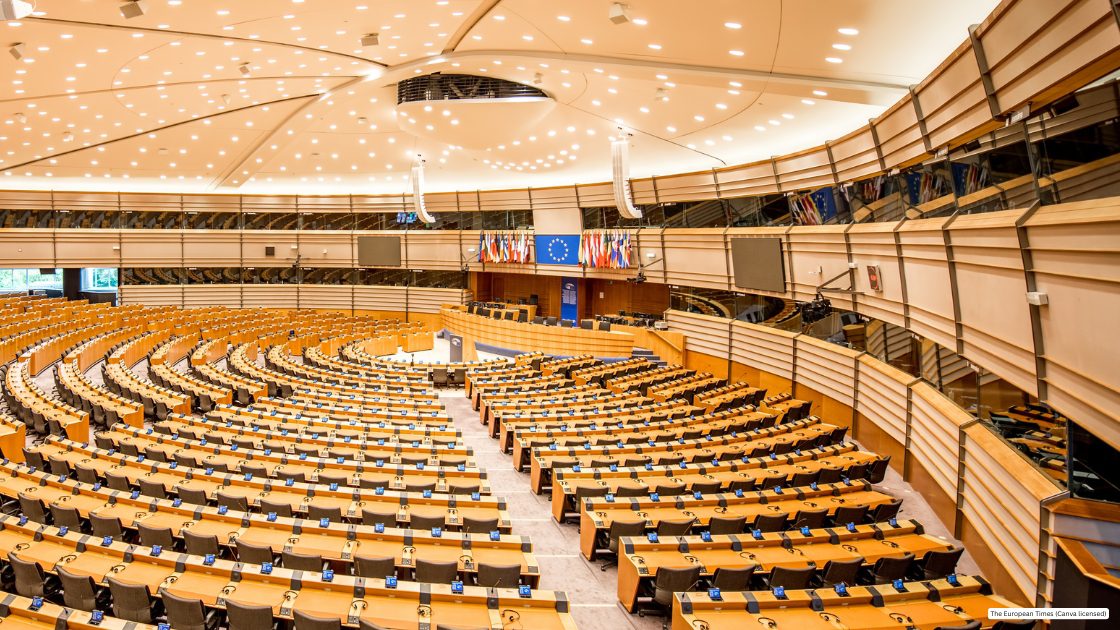

© FRVS+MPCP 2022. The European Times® News is registered as an EU Trademark. All rights reserved. The European Times® and the logo of The European Times® are EU trademarks registered by FRVS+MPCP.
Members/Partners of

About Us
Popular Category
DISCLAIMER OPINIONS: The opinions of the authors or reproduced in the articles are the ones of those stating them and it is their own responsibility. Should you find any incorrections you can always contact the newsdesk to seek a correction or right of replay.
DISCLAIMER TRANSLATIONS: All articles in this site are published in English. The translated versions are done through an automated process known as neural translations. If in doubt, always refer to the original article. Thank you for understanding.
DISCLAIMER PHOTOS: We mostly used photos images that are readily available online, from free sources, or from the people promoting the news. If by any chance it happens that we have used one of your copyrighted photos, please do not hesitate to contact us and we will take it down without question. We do not make profits as this is a not for profit project to give voice to the voiceless while giving them a platform to be informed also of general news, and it is completely free.
Editor Picks
Politics
EYE2025 (European Youth Event): thousands to celebrate the power of democracy | News
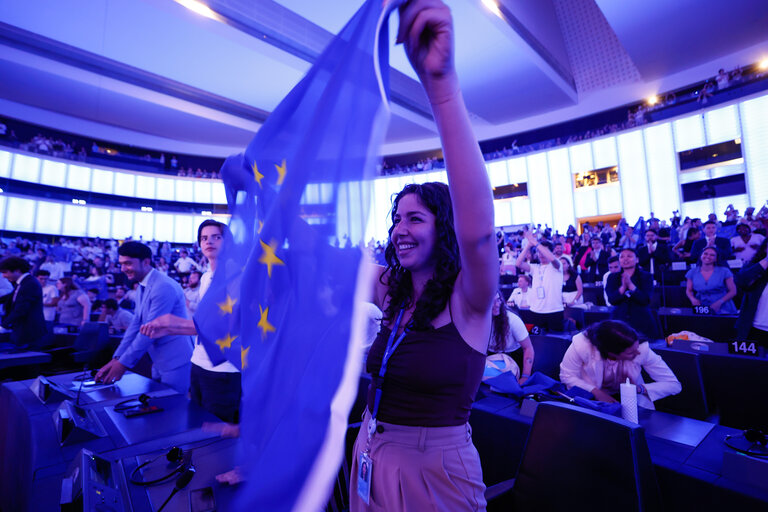
EYE2025 (European Youth Event) will be opened by Parliament Vice-president Sabine Verheyen (EPP, DE) on Friday 13 June at 10:00 in the EYE village. Vice-president Nicolae Ştefănuță (Greens/EFA, RO) will take part in a session dedicated to the next long-term budget, on Saturday at 15:00. The closing session, with Vice-president Pina Picierno (S&D, IT), will take place on Saturday at 16:45.
Over the two days, there will be panel discussions with MEPs and other EU decision-makers, as well as with experts, activists and content creators. Debates between MEPs and the young participants will cover climate justice, skills for the future, the EU’s next long-term budget, and freedom of speech and media, among many other topics.
Commissioner for Intergenerational Fairness, Youth, Culture and Sport Glenn Micallef will lead a Youth Policy Dialogue on Friday at 11:00, and take part in a panel discussion on young people’s mental health that afternoon. Executive Vice-President of the Commission, Henna Virkkunen will join in a conversation on how technology can strengthen democracy, on Friday at 15:00.
Other guest speakers are democracy activist Daria Navalnya, the Kayapo Amazonian tribal leader Chief Tau Metuktire and the Mayor of Strasbourg Jeanne Barseghian.
The programme also includes workshops on a wide range of issues that concern young people, from disinformation to housing and migration. Quizzes, tours, artistic performances, storytelling workshops and concerts are other options among more than 450 activities organised for the sixth edition of EYE.
All sessions in the hemicycle will be streamed live on the EYE2025 Facebook page and via Parliament’s Multimedia Centre. More details about the schedule, speakers and activities are available on the European Youth Event website.
Press briefing
On Friday 13 June at 16:30, there will be a press briefing with Vice-president Verheyen on media freedom in the EU, in the Daphne Caruana Galizia press conference room. You can follow it live here.
Source link
Politics
Galician healthcare system receives nearly €510 million in EU support for its modernisation
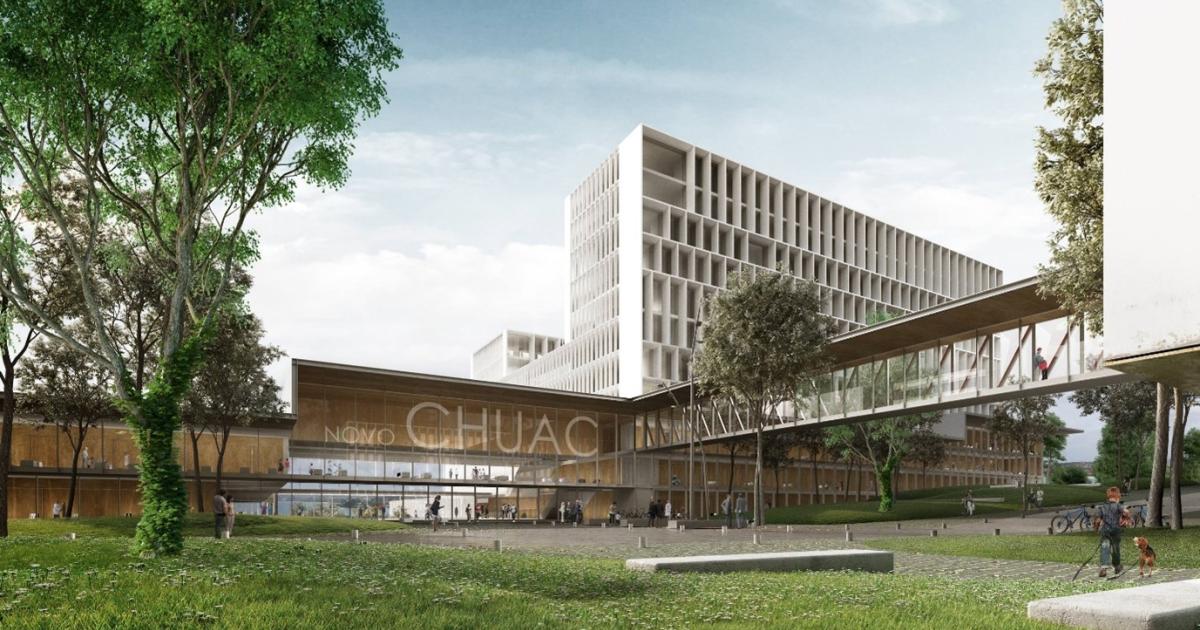
The European Commission supports the development of the new A Coruña university hospital complex (CHUAC) in the city of A Coruña, located in the Spanish region of Galicia. The grant of nearly €60 million awarded under the Public Sector Loan Facility (PSLF), as part of the Just Transition Mechanism (JTM), complements a loan of €450 million provided by the European Investment Bank (EIB), and Xunta de Galicia’s own resources, bringing the total investment to €600 million.
This social infrastructure project of regional interest aims to expand and modernise the existing hospital complex in A Coruña. It is one of Xunta de Galicia’s major actions to strengthen its public healthcare system. The new hospital complex will include state-of-the-art infrastructure and facilities to provide comprehensive and high-quality healthcare and medical services for patients.
The resulting modern and sustainable healthcare infrastructure will improve the provision of health services and the quality of life of the citizens of Galicia, which in turn will enhance regional convergence with a significant impact on the local economy and employment.
Thanks to this project, around 564 000 people are expected to benefit from more efficient, accessible and quality health services in A Coruña and the surrounding areas. The project is also expected to create an estimated 6 140 direct and indirect jobs related to health infrastructure, representing approximately 1.3% of the employed population in A Coruña. With its energy efficiency measures, bioclimatic architecture, as well as sustainable and smart resources management, the project can substantially contribute to climate change mitigation.
This investment therefore plays a crucial role in mitigating the long-term socioeconomic consequences of the coal-fired plants closures in the region, while promoting a sustainable and an inclusive recovery for Galicia in the context of the region’s ageing demographic and green transitions.
Emma Toledano Laredo, Director at the European Commission (DG REGIO), said:
The European Commission, together with CINEA and the EIB, is very proud to bring the new A Coruña university hospital complex to life thanks to the Public Sector Loan Facility. This green, innovative and people-first project will enhance the provision of healthcare to Galicians, while bringing jobs to the region. This is yet another example of how a just and green transition can bring improvement in all sectors of a regional economy and its people.
Paloma Aba Garrote, Director of CINEA, added:
The new A Coruña university hospital complex is an excellent example of how the Public Sector Loan Facility can support European regions in their transition towards climate neutrality and improve people’s lives. Together with our partners, we are proud to invest in a sustainable and modern healthcare infrastructure, which will provide high-quality and accessible services for Galicians while fostering social cohesion, regional convergence and sustainability.
A spokesperson for the Xunta de Galicia regional government stated:
This project aiming to modernise and expand the A Coruña university hospital complex is a fundamental investment to develop the Galician healthcare infrastructure. Galicia is the first Spanish region to receive support from the Public Sector Loan Facility. Moreover, the new CHUAC project has been awarded the biggest PSLF grant so far, amounting to €59.3 million.
About PSLF
The Public Sector Loan Facility (PSLF) is the third pillar of the Just Transition Mechanism (JTM) – a key tool of the European Green Deal Investment Plan to make sure that no one and no region is left behind in the transition to a climate-neutral economy.
The PSLF combines loans from the European Investment Bank (up to around €6-8 billion) with grants from the European Commission (up to €1.3 billion). The combined support is designed to mobilise additional investments for public sector entities in the regions most affected by the green transition as identified in the Territorial Just Transition Plans, to meet their development needs as they move towards a climate-neutral economy. Each Member State creates these plans to identify the challenges faced by just transition regions, along with their development needs and targets for 2030.
The combination of the European Investment Bank loan and the EU grant will help fund projects that do not generate enough revenues to cover their costs.
PSLF is managed by DG REGIO and implemented by CINEA.
About DG REGIO
The Directorate-General for Regional and Urban Policy (DG REGIO) is the department of the European Commission responsible for EU policies on regions and cities. It develops and carries out the Commission’s policies on regional and urban policy. It assists the economic and social development of the developed and less developed regions across the European Union.
About CINEA
The European Climate, Infrastructure and Environment Executive Agency (CINEA) is an Executive Agency established by the European Commission to implement parts of EU funding programmes for transport, energy, climate action, environment and maritime fisheries and aquaculture. CINEA aims to assist its beneficiaries, establish strong partnerships, deliver high-quality programme and project management, foster effective knowledge sharing and create synergies between programmes – to support a sustainable, connected, and decarbonised Europe.
About the EIB
The European Investment Bank (EIB), whose shareholders are the 27 Member States of the European Union, is the EU’s long-term financing institution. The EIB provides loans to the public and private sectors to support high-quality investments contributing to the achievement of the EU headline targets.
Visit the PSLF webpage on CINEA website to find out more about the Facility and the projects it funds.
-
EU & the World5 days ago
Aurora Borealis Forecast: Where & When to See the Northern Lights Tonight
-

 Sports7 days ago
Sports7 days agoChampions League Final 2024-2025: PSG-Inter, official lineups
-

 EU & the World6 days ago
EU & the World6 days agoRihanna’s Parents: About Her Late Dad Ronald Fenty & Mom Monica Braithwaite
-

 Sports6 days ago
Sports6 days agoOfficial: Damien Comolli new general manager of Juventus.
-

 EU & the World6 days ago
EU & the World6 days agoLoretta Swit’s Net Worth: How Much Money the ‘M*A*S*H’ Alum Had
-

 EU & the World6 days ago
EU & the World6 days ago‘King of the Hill’ Revival: Upcoming Hulu Sitcom’s Release Date & More
-

 Sports7 days ago
Sports7 days ago“Pecco Bagnaia is a'shadow”: the'former driver celebrates Marc Marquez
-
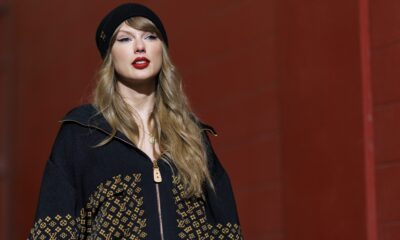
 EU & the World6 days ago
EU & the World6 days agoTaylor Swift’s Net Worth: How Much Money She Has in 2025








